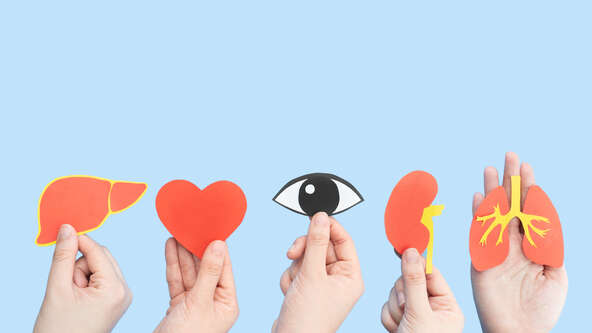5 Important Reasons to Consider Organ Donation

Did you know more than 100,000 people in the U.S. are waiting for a life-saving transplant? Just one organ donor can save up to eight lives and improve the quality of life for dozens more.
Organ and tissue donation is one of the most meaningful gifts you can give after death. It’s a powerful part of your legacy that won’t prevent you from having the funeral or cremation plan you choose.
Here are five compelling reasons to consider registering as an organ donor today.
1. People Are Dying Waiting for Transplants
According to the Mayo Clinic, over 106,000 men, women, and children in the U.S. are currently waiting for a transplant. Another name is added to the list every nine minutes, and an average of 17 people die each day because an organ didn’t arrive in time.
Although 95% of Americans support organ donation, only 54% are registered donors. And only a small percentage of people die in a way that allows for donation. That’s why growing the donor registry matters so much. Organ donation is a crucial part of thoughtful planning, which includes a long-term care plan and writing a will.
2. One Donation Helps Dozens
A single donor can save up to eight lives through organ donation and help as many as 75 people through tissue donation. These transplants are often the only medical option available for healing or survival.
Tissue Donations
Many types of tissue can be donated, including:
- Bone
- Cartilage
- Corneas
- Heart valves
- Ligaments
- Middle ear
- Skin
- Tendons
- Veins
Doctors remove donated tissue within 24 hours of death. It is safely stored in a tissue bank and matched with a recipient.
Commonly Donated Organs
You don’t have to donate everything. Organ and tissue donation is a flexible and deeply personal decision. The most commonly donated organs:
- Heart
- Kidneys
- Liver
- Lungs
- Pancreas
You can be an organ donor, whether you choose burial or cremation, even direct cremation. But your loved ones need to know your wishes, and you must give consent during your lifetime.
3. Most People Can Be Donors
In most cases, adults aged 18 and older can register as donors. Organ and tissue donation isn’t restricted by race, religion, or socioeconomic status. Medical professionals determine which organs or tissues can be used at the time of death based on health history and donation guidelines.
Matching is handled through a national transplant database, using:
- Blood and tissue type
- Body size
- Medical urgency
- The geographic distance between donor and recipient
Being registered is the first step in a comprehensive end-of-life plan. If you’re not sure where to start, check out our expert advice guides.
4. Organ Donation is 100% Free to Donors
Your loved ones or estate will not incur any charges for the donation. The organ recipient (or their insurance company) pays for recovering your heart, liver, or other organs and tissue. And to be clear, buying or selling organs and tissue for transplantation is illegal. Organ Procurement Organizations (OPO) are strictly regulated. They are prohibited from advancing people who are waiting for an organ or tissue transplant based on race, income, gender, or social status.
Tell your family, friends, and doctor you are a registered organ donor. You want them to honor your wish to help others after you’re gone. As part of your estate planning and prepaid cremation plans, ensure your personal and contact information is correct on your state’s donor registry.
5. Most Major Religions Support Donation
Organ donation is widely supported by religious groups worldwide. Many consider it an act of compassion, kindness, and charity.
Most Christian, Jewish, Buddhist, Hindu, and Sikh traditions support organ and tissue donation, often leaving the decision up to the individual. Even within faiths that have concerns (such as some interpretations of Islam), opinions may vary by region or cleric.
How to Register as an Organ Donor
Registering is simple and doesn’t affect your funeral or cremation plans. You can still choose burial, cremation, with or without a memorial service.
You can register:
- When you renew your driver’s license or state ID
- Online through Donate Life America
- Through your state’s organ donor registry
The Gift That Lives On
Becoming a registered organ donor is a meaningful way to make a difference after you’re gone. Making your funeral arrangements long before you need them is another way to show your loved ones how much you care. Prepaid cremation lets you lock in today’s prices, protects your family from additional stress, and ensures your wishes are honored.
Get started with a free, instant quote
Answer a few brief questions below and receive an instant quote for your direct cremation needs.